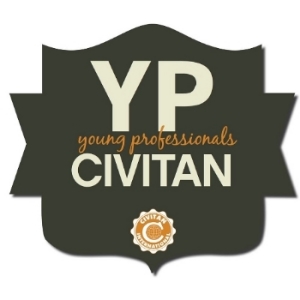WAKE Up and Read Makes an Impact on Childhood Literacy in Wake County
By Christopher DeWitt
French poet and novelist Victor Hugo once said, “To learn to read is to light a fire; every syllable that is spelled out is a spark.” Literacy is crucial to healthy learning and development in children. Unfortunately, there are barriers that can hamper literacy in children early on in life, such as poverty and a lack of access to educational resources. One organization in Wake County, WAKE Up and Read (WUAR), works to ensure all children get the opportunity to develop strong literacy skills and have bright futures.
A Passion for Education
WUAR started in 2013 as a collaborative effort headed by Angie Wright, a former Wake County Public School System (WCPSS) Senior Director of Grants, and Sherry Merritt, the active director of literacy with WCPSS at the time. Their vision was well-received by the surrounding community, and they received support from other agencies that were aligned with that kind of work.
“WUAR’s founders shared a collective desire to improve early childhood literacy outcomes in Wake County,” said Marissa Smith, M.Ed, MSA, WAKE Up and Read Family Leadership and Literacy Liaison. “Our core mission remains to engage and educate our community about the importance of childhood literacy and to increase access to literacy resources and opportunities for all children.”
Smith stated that WUAR abides by the guiding principles that:
Literacy is the right of every child.
Community collaboration increases access to literacy resources.
Every child deserves high-quality learning experiences.
Literacy is achieved and enjoyed in multifaceted, diverse ways that respect each child’s individual needs.
Image courtesy of WUAR
Removing Barriers
According to Smith, issues with childhood literacy and access to books are problems in Wake County, particularly where there are high rates of poverty, book deserts, low education rates, and food, housing, and job insecurity. As of 2023, 10.1% of Wake County children live in poverty. For WUAR, children in Wake County experiencing such hardship are a special focus for them.
“We support all of Wake County but prioritize areas experiencing these factors, working to remove barriers to access,” said Smith. “This means a community-based approach to working with families, realizing that learning can happen everywhere. We go to the families. With Wake County Public Schools as our backbone agency, we work closely with the Title I schools in our school district.”
According to Smith, WUAR takes these measures to address the issue of childhood literacy:
Free book fairs and family engagement nights at our 19 partner schools, 18 partner child development centers, and various community sites.
A Parent Leader Network to strengthen understanding of the science of reading, empower parents to be their child’s first teacher, and ensure that families have the knowledge and resources to support learning at home.
Providing books and literacy resources to churches, community centers, and other locations that families frequent.
Collaborative initiatives to support childhood literacy with the coalition’s cross-sector partners and the community at large, e.g., Little Free Libraries, taking part in events to provide access to Pre-K registration, community listening sessions, and data collection and sharing.
The Importance of Community
As a nonprofit, WUAR operates on limited resources. They have one full-time staff member, five part-time staff members, and one intern. Thus, they rely on a robust volunteer network to support their operations. Smith stated that 8-10 volunteers come out consistently on a given month to support various activities such as book sorting and processing, community-based programming, and family engagement events. This partnership of dedicated individuals and community organizations makes up the ingredients of WUAR.
Smith highlighted that WUAR is a community collaborative of 30+ agencies in Wake County, all sharing a commitment to ensuring that all children across Wake County read proficiently by the end of 3rd grade.
Image courtesy of WUAR
“WUAR is the local affiliate of the National Campaign for Grade-Level Reading, and we focus on three key areas: school readiness (birth-5 years old), learning opportunities (K-5th grade outside of school learning), and engaging families as partners,” said Smith. “Each year, along with our community partners and supporters, we supply books and literacy materials to thousands of families. We partner with families through our Parent Leader Network to learn from and with them about the science of reading and what they can do at home to support learning. We show them how to advocate for their children and provide the tools to make learning effective and engaging and inspire curiosity within their children. Families are also connected to other agencies to better meet their needs overall.”
If you want to get involved with WUAR, you can look for volunteer opportunities on their volunteer openings webpage. You can also donate books at their headquarters at 1820 Capital Blvd, Raleigh, NC 27604, or donate funds. Most importantly, Smith encourages everyone to spread the word about WUAR as they continue their ongoing work.


